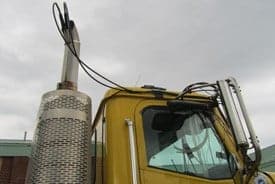Tecnalia has collaborated in a study for the European Parliament’s Science and Technology Options Assessment Panel (STOA) on the future use of methanol, produced from carbon dioxide, in motorised transport. STOA is the panel that advises MEPs in the sphere of Science and Technology.
The study analysed the barriers –technological, environmental and economic– to producing methanol using carbon dioxide as well as the options that would allow possible uses in automobile transport in the medium and long term.
The costs and benefits were evaluated from the life cycle perspective in order to compare various raw materials for producing methanol and in order to reflect the potential benefits of methanol obtained from CO2.
The report concluded that benefits in the medium and long term can be anticipated since the obtaining of an alternative fuel using a residual greenhouse gas would allow European dependence on conventional fossil fuels to be cut, and that way the risks in supply security to be minimized. The study highlights, however, that a sustained effort will be needed in research and development in order to turn CO2 into a competitive raw material, produce it efficiently using emissions, and ensure that it is an attractive fuel for the transport sector as well as for other industries.
Europe’s growing difficulties in accessing a secure supply of fossil fuels at acceptable prices are forcing it to consider alternative options to enable the transport service to go on being affordable for the production base and citizens during the transition towards an economy that is less dependent on oil.



The only way this has any benefit is if renewable energy is used for the reaction to produce the methanol from CO2 and H2O.
In other words, it can be viewed as a way to store wind or solar energy. There are already other ways to do that. So why is this better than flywheels, pumped water, battery banks, etc.?